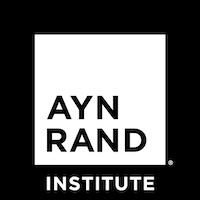
Essentials of Objectivism: Ethics
The purpose of this course is to help you better understand core principles of the Objectivist ethics and the reasoning behind them. We will explore in some depth Ayn Rand’s case that: values are based on objective facts; that “man’s life” is the standard of morality; that his own happiness is his highest moral purpose; that reason is man’s basic means of survival and rationality his basic virtue.
The purpose of this course is to help you better understand core principles of the Objectivist ethics and the reasoning behind them. We will explore in some depth Ayn Rand’s case that: values are based on objective facts; that “man’s life” is the standard of morality; that his own happiness is his highest moral purpose; that reason is man’s basic means of survival and rationality his basic virtue.
The primary reading for this course is Rand’s essay “The Objectivist Ethics,” the lead essay in her book The Virtue of Selfishness (VOS). (Supplemental readings from Galt’s Speech and Leonard Peikoff’s book Objectivism: The Philosophy of Ayn Rand (OPAR) may also be assigned).
The amount of assigned reading for each week is quite small, but there is a lot of content packed into that small space, and it will require thought and re-reading to process. We will discuss objections to Rand’s view in class, but when reading the assigned material, your primary focus should be on understanding the claims being made and the reasons given in support of those claims.
To request a copy of Rand’s The Virtue of Selfishness, please follow this link.
For each class, you will be required to answer a question posed by the instructor. Maximum word count for these answers is 400 words. Assignments (along with final readings) will be posted at least one week before the relevant live discussion session and will be due on the Sunday (noon Pacific Time) before the live discussion session.
The purpose of these assignments is to evaluate your thinking about the reading and your ability to convey your thoughts clearly. Because of this, you are expected to write each assignment on your own. You should not have someone else help you write the assignment or use any AI tools such as ChatGPT.
Note: staying within the maximum word count is an important part of the assignments and will be reflected in the assignment’s grade.
Assignments will be graded on a scale from 0 to 5. Assignments submitted late, but on the assigned day, will be penalized 1 point. Assignments submitted after the day they are due without prior approval will receive a zero.
The weighting of your assignments for your final grade will be:
- Answers to instructor questions: 80%
- Class participation: 20% (determined by class attendance and in-class discussion)
Live class will meet on Fridays from 9:30am – 11:00am Pacific Time. Although live attendance is the norm, classes will be recorded so that they can be accessed by students who need to miss the live class.
If you have questions about the syllabus or course content, please email the instructor (asmith@aynrand.org). For administrative or technical issues – e.g., inability to log on – email Reagen Leimbach (rleimbach@aynrand.org.) If you are late with an assignment or want to request an extension (48 hours advance notice required), email both Reagen and the instructor.
You don’t currently have access to view this content
Course Content

Course Faculty
 Aaron SmithDr. Smith is an instructor and fellow at ARI where he teaches and designs educational content for the Institute’s intellectual training and e-learning programs. He also writes, speaks, and gives interviews for the Institute. Dr. Smith received his PhD in philosophy from Johns Hopkins University where his research focused on Aristotle’s theory of knowledge.
Aaron SmithDr. Smith is an instructor and fellow at ARI where he teaches and designs educational content for the Institute’s intellectual training and e-learning programs. He also writes, speaks, and gives interviews for the Institute. Dr. Smith received his PhD in philosophy from Johns Hopkins University where his research focused on Aristotle’s theory of knowledge.
